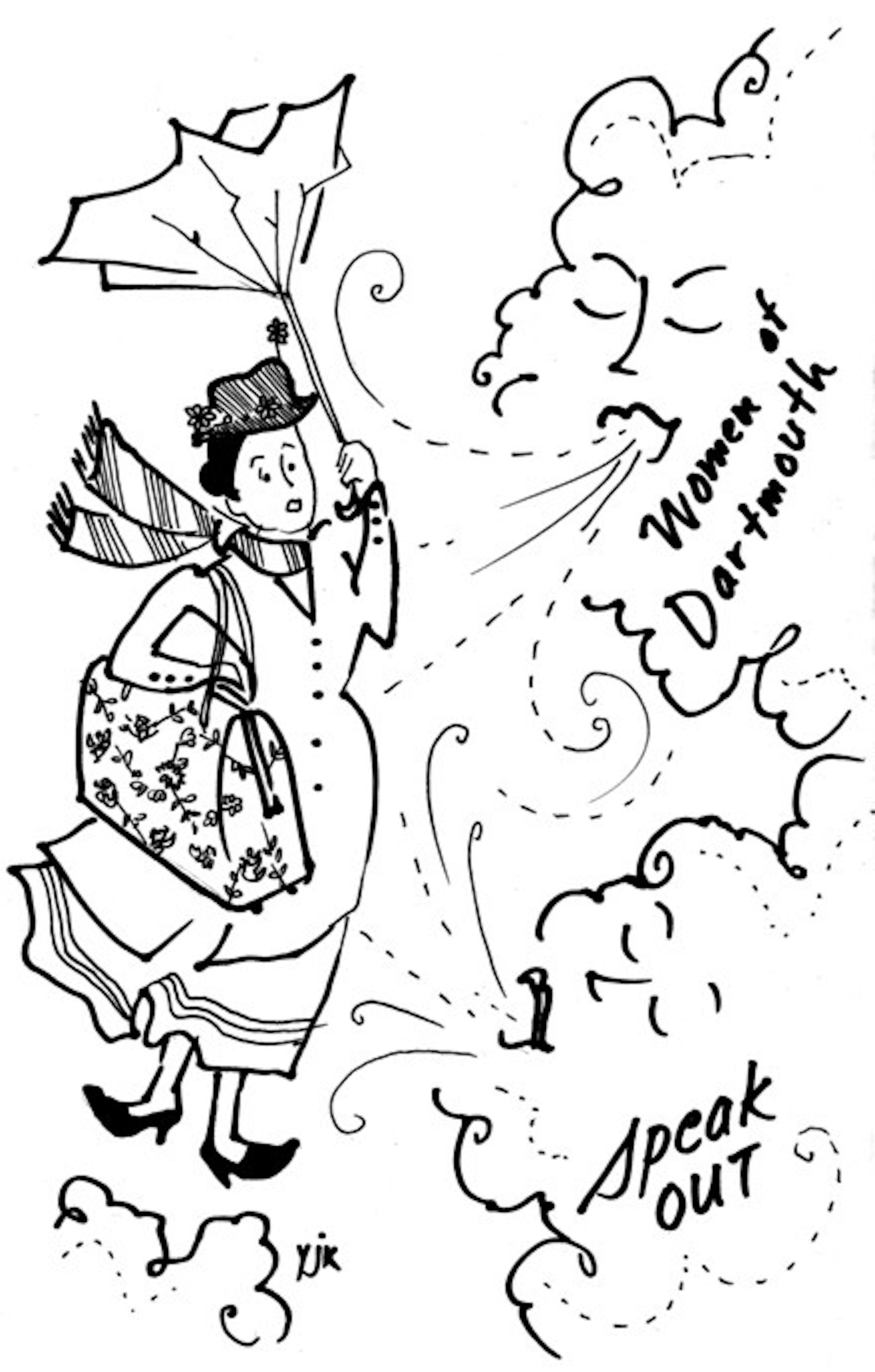It comes as no surprise, then, that we don't know our peers all that well. We shirk our duties of camaraderie and instead allow ourselves to fall into a state of practiced indifference. In doing so, it becomes increasingly easy to mitigate relationships.
My women and gender studies class recently had a discussion about the film "Nine Lives" (2005), which features brief snapshots into the lives of nine women, with each story being cut off just as we become invested. While such cliffhangers serve their purpose in cinema, real life does not necessarily follow the same rules. It shouldn't take a cliffhanger to spark an interest in our peers. Their mere existence as our fellow human beings should be motivation enough for us to seek out their stories.
Part of the charm of the Dartmouth persona is the constant guise of perfection that we manage to perpetuate. Most of us do not have cliffhanger pasts or backgrounds that deviate from what is considered normal. For the most part, we don't admit to having problems or being dissatisfied with our surroundings.
For a long time, this ubiquitous happy-go-lucky attitude made me uncomfortable. I didn't think everything was perfect, and I couldn't believe that no one else shared the same feelings. Slowly, however, the cracks began to show, especially at events like Speak Out and the Women of Dartmouth panel. I began to feel like less of an outsider as I came to realize that there are others whose lives are imperfect.
It is easy, of course, to allow our friends and acquaintances to remain shrouded in mystery. Discovering and revealing secrets can be tenuous, and to suggest that our lives should be open books would be naive and unreasonable. But we should work toward becoming less afraid of the repercussions of sharing our feelings. We guard ourselves from the world, forgetting that we cannot be protected from sadness without simultaneously blocking happiness. We create walls that are meant to be impenetrable to the pains of the world, ignoring that we also exile joy.
There is nothing wrong with feeling, though it seems to have been pushed to the wayside. To some degree, we live our lives from above, dictating motion and directing movement from an elevated perspective. By keeping ourselves at a safe distance, we keep others at bay.
I am certainly guilty of taking such measures, for there is nothing more terrifying than the thought of honest rejection. I maintain my freedom by being aloof. I claim to be unaffected by the opinions of others because, as Dr. Seuss says, "Those who mind don't matter, and those who matter don't mind." But this is not always true. We cannot continue to excuse ourselves and justify judgment with cliches. We must begin by being honest.
I have found that, at times, it is difficult to have conversations at Dartmouth, and it isn't because people have nothing to say. Rather, it seems that the facade that people put forward in public has been fabricated with such care that removing it for even a second runs the risk of shattering an entire persona.
It shouldn't take events like Speak Out or Women of Dartmouth to allow students to break the mold and share their stories. We shouldn't have to put people on a stage in order to hear their experiences.
Although it does take great strength and resolve to present oneself in such a selfless and unapologetic light, we must find ways to make such actions more commonplace on campus. These are the conversations that evoke thought, allow for true communal learning and provide a catalyst for change. Only by having this sort of honest and open discourse can we achieve the sense of community so widely adored and applauded by the members of the Dartmouth community.


